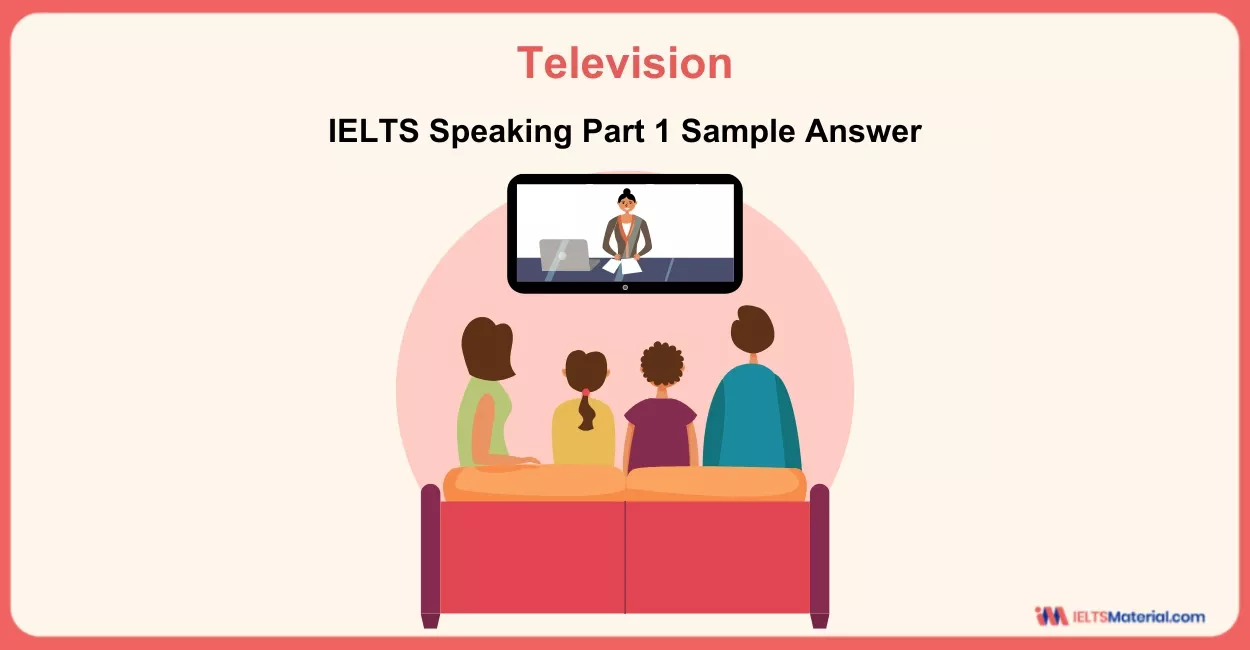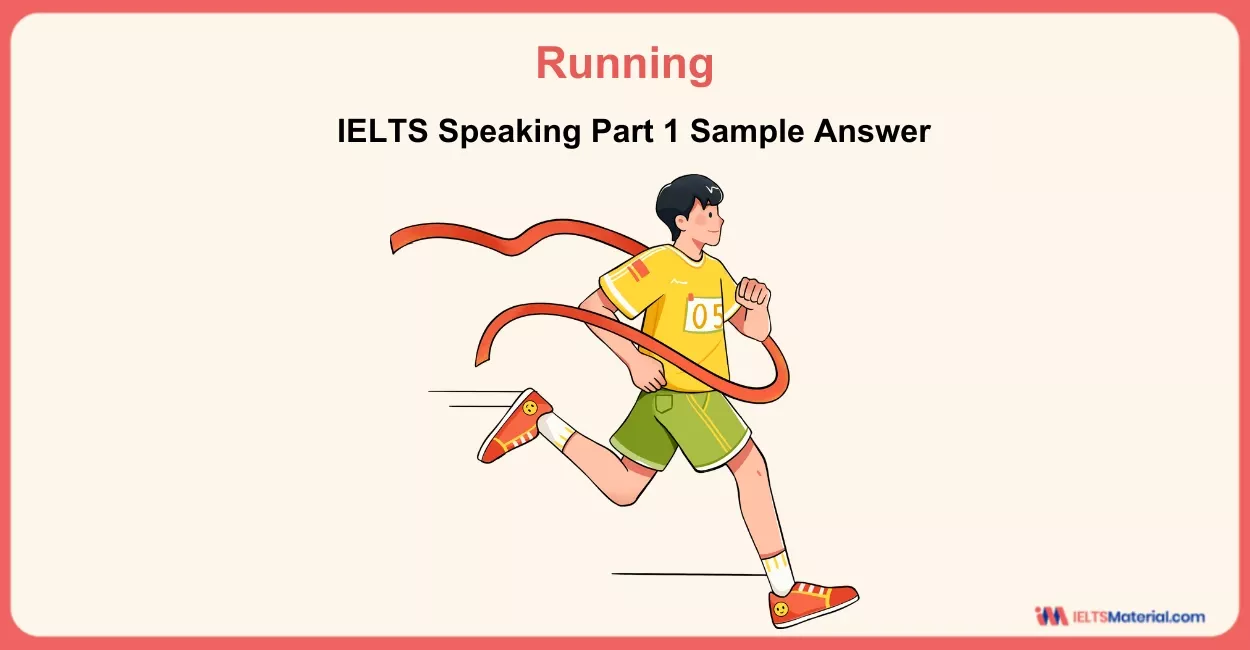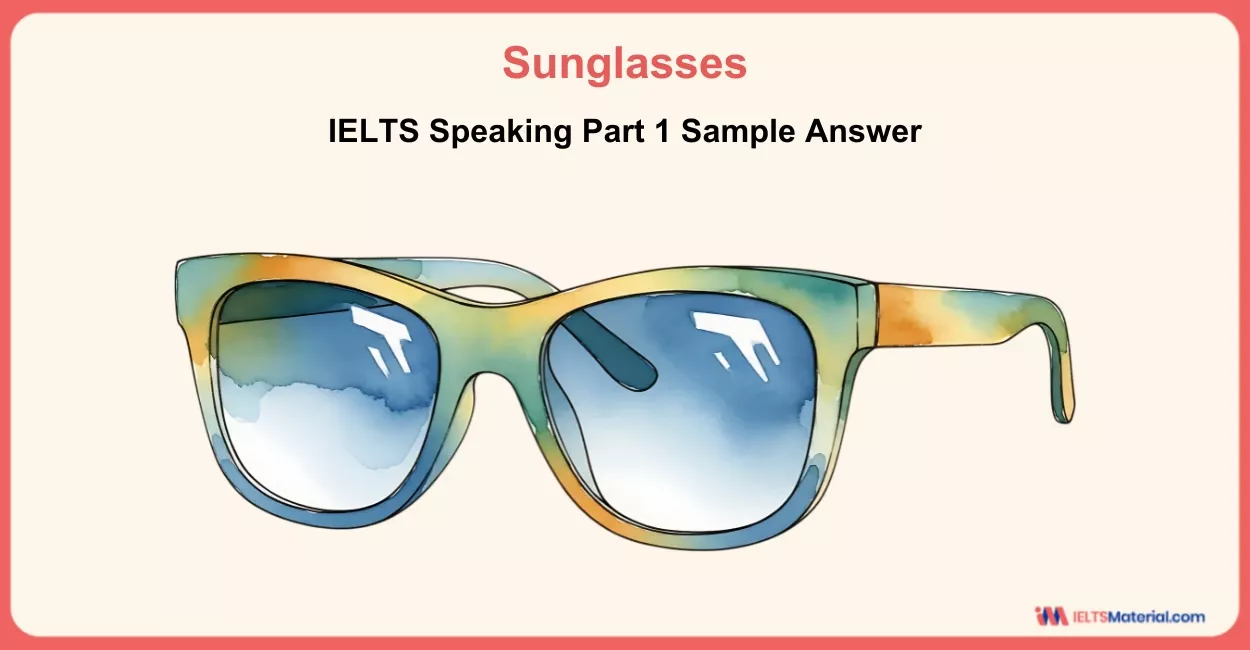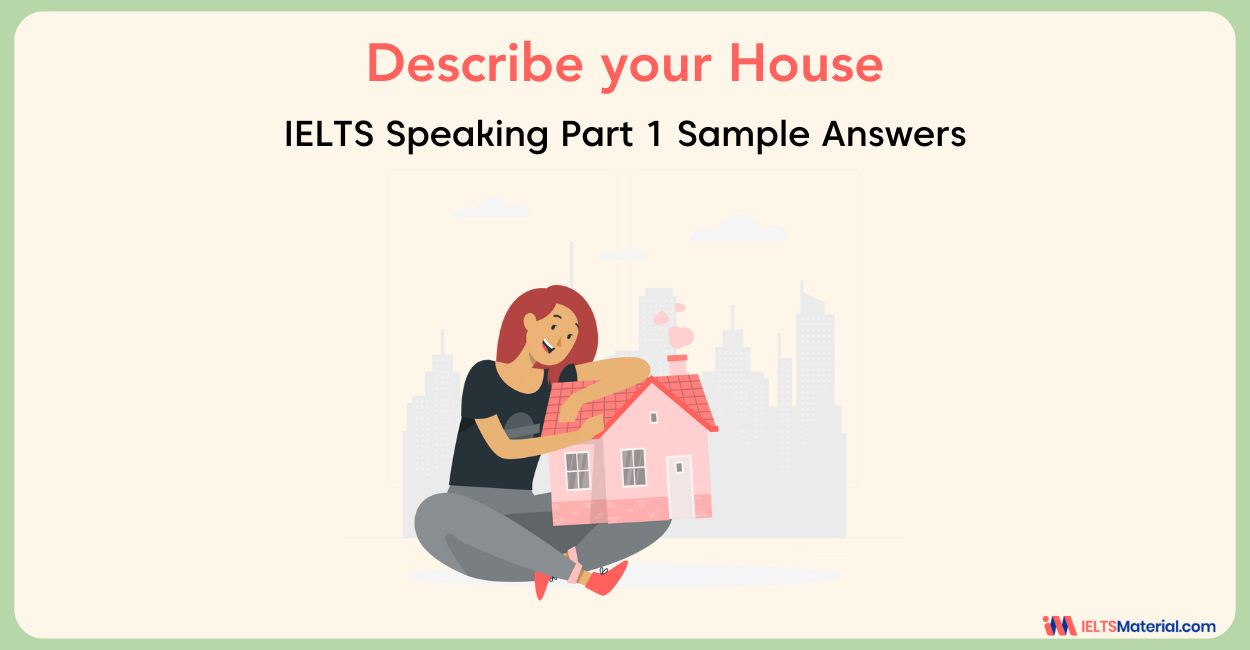Study IELTS Speaking Part 1 with Sample Answers
13 min read
Updated On
-
Copy link
The article provides sample answers and vocabulary for IELTS Speaking Part 1 on the topic of 'Study'. It includes questions about studying or working, major choices, challenges, study preferences, and future plans.
Table of Contents

Get a Complimentary IELTS Speaking Strategies PDF
It can be quite difficult to concentrate on studying, especially when the topic itself is ‘Study’. However, it is important to be prepared for questions on the topic ‘Study’ in IELTS Speaking Part 1. Therefore, in order to respond to questions from the IELTS examiner in a natural and fluent manner during IELTS Speaking Part 1, you should concentrate on only one though, use grammatical rules and vocabulary to develop that idea into a lengthy, meaningful phrase while practising IELTS Speaking practice tests.
Doing so will increase your speaking score to Band 8.0+ while you answer Part 1 on study. So, to make your IELTS preparation journey easier, we have curated sample answers on IELTS Speaking Part 1 questions on study. Let’s get started!
Learn some secrets for answering IELTS Speaking part 1 from the video below if you are preparing for IELTS 2025!
Study IELTS Speaking Part 1 with Sample Answers
Given below are some important IELTS Speaking recent actual test questions based on Study with sample answers.
1 Are you studying or working?/Do you study or work?
Sample Answer 1
I’m currently a senior at “…” University, which is one of the top schools in the nation. Admission is incredibly competitive, so I’m very proud of being a student here.
Sample Answer 2
I’m a student at “(name of the institution)” in “(name of the country)” right now. I am in my final semester of Civil Engineering. Recently, I have got a job offer through the campus hiring at “name of company”.
Sample Answer 3
Currently, I am studying English in “name of institution” in “name of country”. In addition, I work a part-time job at a nearby cafe to help pay for my education.
2 Where do you study?
Sample Answer 1
I study at (Name of university). It is one of the popular public universities in my country and is well known for the diverse courses it provides and the top-notch faculty.
Sample Answer 2
I study at (Name of university), which is a popular private university, well known for its science courses. It is located in the heart of (city name) and attracts a lot of international students as well.
3 What are you studying?/What subject are you studying?
Sample Answer 1
Well, I’m majoring in Accountancy, so as you can guess, I deal a lot with numbers and figures day in, day out. It can be overwhelming at times, but I think that I have a knack for mathematics and calculations, so it’s okay.
Sample Answer 2
I am in my final semester of Civil engineering at this prestigious university. It had always been a dream for me to become an engineer and I had worked very hard for it. In a few months, my dream will come true and I am so ecstatic.
Sample Answer 3
I am majoring in English literature as I had always wanted to research the Shakespearean era. I am aware that it is one of the most sought after areas and most of it has already been covered. But, I feel my interest and eye for details can add more to this volume.
4 Is it a popular subject in your country?
Sample Answer 1
Yes, it is quite a popular subject in my country. Many students choose it because it offers excellent career opportunities and aligns well with the job market demands. For example, fields like engineering, medicine, and information technology are highly sought-after, as they promise lucrative salaries and job stability. Moreover, parents often encourage their children to pursue these subjects due to their perceived prestige and societal value.
Sample Answer 2
Not particularly. While some people do pursue it, other subjects like business and arts have become more popular in recent years. This is because students today prefer fields that offer creativity and flexibility rather than sticking to conventional subjects. However, those who are passionate about the subject or see potential in its long-term benefits still choose it, especially in rural areas where it remains a traditional choice.
5 Why did you choose to study that major?
Sample Answer 1
There are many reasons for my choice. Primarily, I have an interest in Accountancy. Another reason could be because of Accountancy itself since I’ve found that my personality has changed positively. I’ve become more patient and skillful.
Sample Answer 2
Since I mostly grew up with my grandparents, my grandfather had a huge influence on my life choices. He was a well-known engineer in our city and his ideas and the respect that he got from people motivated me to choose this major.
Sample Answer 3
I have been a bookworm since childhood and the works of Shakespeare and his contemporaries like Christopher Marlow and Ben Jonson have always intrigued me. So, to follow my passion and conduct my research in this era, I chose this subject.
6 Is it a difficult subject to study? What’s the most difficult part of your study?
Sample Answer 1
Well, for the most part, I’d say it’s the workload. I mean there are so many assignments, and students are always under a lot of pressure to meet deadlines. But on the other hand, exams are a piece of cake. They are entirely predictable, and I can pretty much breeze through them with a bit of revision.
Sample Answer 2
The most challenging aspect of studying civil engineering is mastering the complex theoretical concepts and mathematical principles that form the foundation of the discipline. Additionally, applying these concepts to real-world engineering problems and projects requires a keen understanding of various factors such as material properties, structural dynamics, and environmental considerations. I do, however, enjoy these challenges, which piques my interest in studying this subject.
Sample Answer 3
In my opinion, the most challenging part of studying this subject is being a non-native. Since I stay in (name of the country), I am completely dependent on study materials that are available in the market. Moreover, the curriculum of this study is basically rote learning, which I don’t think is the correct way to study this fascinating subject. So, I want to move to the U.K. and get the knowledge first-hand.
7 Which part of the course do you enjoy most?
Sample Answer 1
I enjoy the practical aspects of the course the most, especially the hands-on projects and experiments. For instance, in my engineering course, building prototypes and solving real-world problems allows me to apply theoretical knowledge in a tangible way. It’s both challenging and rewarding to see how concepts come to life through practical work.
Sample Answer 2
I particularly enjoy the group discussions and interactive sessions. They provide a platform to exchange ideas and gain diverse perspectives. For example, during our marketing case studies, brainstorming with my peers helps me think creatively and approach problems from different angles. This part of the course makes learning more engaging and collaborative.
8 If you had the chance, would you change the subject?
Sample Answer 1
No, I wouldn’t change the subject because I am genuinely passionate about it. I find the topics interesting, and the skills I am learning are directly aligned with my career goals. For example, studying computer science has opened up many opportunities in fields like artificial intelligence and software development, which I want to pursue in the future.
Sample Answer 2
Yes, I think I might consider changing the subject if given the chance. While the current course is valuable, I feel my interests lie elsewhere. For instance, I’m studying economics, but I’ve realized I’m more inclined toward creative fields like graphic design. Switching subjects would allow me to explore my true passion and enjoy the learning process more.
9 What do you like most about your school/university?/What is the best thing about your university/school?/What part of university life do you like best?
Sample Answer 1
I guess the aspect I find most enjoyable is the environment. I mean, I get to study in English-speaking classrooms, and the facilities are top-notch; I mean, all the classrooms are air-conditioned and equipped with projectors. My friends and teachers are all adorable, so, all in all, it’s a great place to study.
Sample Answer 2
My favorite thing about my university is its lively intellectual atmosphere, which gives me the chance to interact with people who have different viewpoints and views. Moreover, the helpful instructors and materials offered also help create a favorable learning environment.
10 What is your favourite subject?/What was your favourite subject at school?
Sample Answer 1
My favourite subject is mathematics because I enjoy solving problems and finding logical solutions. It challenges my critical thinking and analytical skills, which makes it both exciting and rewarding. For instance, I always loved geometry and algebra in school, as they gave me a sense of accomplishment when I arrived at the correct answers.
Sample Answer 2
My favourite subject in school was history. I found it fascinating to learn about past civilizations, significant events, and how they shaped the world we live in today. For example, studying ancient Indian history and the freedom movement was inspiring and helped me appreciate my cultural heritage.
11 What kind of school did you go to?
Sample Answer 1
I went to a private school that focused on academics and extracurricular activities equally. The school had well-equipped classrooms, a library, and facilities for sports like basketball and swimming. It also emphasized discipline and provided a strong foundation for higher education, which I found very beneficial.
Sample Answer 2
I attended a government school in my hometown. Although the resources were limited compared to private schools, the teachers were very dedicated, and the environment was supportive. The focus was more on academic performance, but we also had cultural events and sports days that made the experience enjoyable.
Get your IELTS questions answered now! Book a free trial & talk to our Experts!
12 Do you prefer to study in the morning or in the afternoon?
Sample Answer 1
I prefer studying in the morning when I tend to be more alert and focused. There is less noise compared to the rest of the day and after the morning yoga session, which is part of my daily routine, I feel energized to handle any difficulty with patience.
Sample Answer 2
Due to my class timings that start from early morning, I prefer to study in the afternoon. I feel it is a more productive time for study due to different circadian rhythms. However, my study times are not fixed as I have other chores to do at home.
13 What technology do you use when you study?
Sample Answer 1
Due to the variety of educational tools, I have no dearth of options. So, I mostly rely on online research databases, digital textbooks, and productivity tools like note-taking apps. Additionally, video conferencing platforms and collaborative online spaces facilitate group discussions and project work, enhancing my overall learning experience.
Sample Answer 2
I mostly use educational applications and websites that allow me to take knowledge tests and quizzes. Honestly, I mainly use them before exams to brush up my understanding of the key concepts. When you’re pressed for time and need to catch up on some coursework, they truly come in handy.
14 What kind of job would you prefer after graduation?
Sample Answer 1
I would prefer a job in a multinational company where I can utilize my skills in software development. I’m particularly interested in roles related to artificial intelligence or data analysis, as these fields are rapidly growing and offer opportunities to work on innovative projects. A dynamic workplace with opportunities for learning and growth would be ideal for me.
Sample Answer 2
After graduation, I’d like to work in a creative role, such as graphic designing or digital marketing. I enjoy expressing ideas visually and connecting with people through innovative campaigns. Working in a company that values creativity and provides opportunities to experiment with new ideas would be my preference.
15 What is the educational system like in your country?
Sample Answer 1
Thank you for asking this question. Elementary education in our country is compulsory for all children below 14 and is supported by the government. Government and commercial groups are also in charge of managing and overseeing the secondary and postsecondary education systems. Private educational institutions, on the other hand, are required to use a portion of the national curricula and typically adhere to their own syllabus. Higher education is provided in English in many colleges and all universities. In our nation, technical and vocational schools and universities are well-liked, and they mostly provide degrees and certifications in a limited number of subjects linked to practical and technical skills.
Sample Answer 2
India has a broad educational system with several tiers, including primary, secondary, and postsecondary education. Typically, there are two years of elective higher secondary education (grades 11 and 12) and ten years of mandatory education (up to the 10th grade) in the school system. The universities and institutions that offer undergraduate and graduate degrees are part of the higher education system. In order to meet the demands of the labor market, vocational and skill-based education is becoming more and more important.
16 What are your future study plans?
Sample Answer 1
As a science student, my future study plans involve pursuing an advanced degree in a specific scientific discipline to deepen my understanding of fundamental principles and engage in cutting-edge research. Also, I aspire to contribute to the scientific community by exploring innovative solutions to real-world problems and participating in collaborative projects.
Sample Answer 2
Being a commerce student, I plan to specialize in a specific area within commerce, such as finance or marketing, to align my studies with my career interests. Additionally, I plan to engage in internships and practical experiences to apply theoretical knowledge to real-world business scenarios and develop valuable industry skills.
Sample Answer 3
After completing my Bachelor’s in English literature, I would like to enroll for a Master’s degree from a reputed university in my country, after which I would apply for a PhD. Apart from that, I plan to participate in literary communities, conferences, and workshops to foster intellectual exchange and further enrich my appreciation for the diverse world of literature.
17 Why are you taking the IELTS test?
Sample Answer 1
I am taking the IELTS test as an English literature student to fulfill the language proficiency requirements for potential academic pursuits abroad, such as enrolling in a Master’s program in (name of university). Achieving a high IELTS score is crucial for demonstrating my ability to comprehend complex literary texts, engage in scholarly discussions, and contribute effectively to an English-speaking academic environment. Ultimately, it opens doors to diverse global opportunities in the field of English literature and allows me to connect with a broader community of scholars.
Sample Answer 2
Taking the IELTS test as a science student will help me meet language proficiency requirements for overseas study and research opportunities. A strong performance on the IELTS is essential for showcasing my ability to communicate scientific ideas, collaborate with international researchers, and contribute effectively to an English-speaking academic setting. This is a crucial step in gaining access to global scientific communities and pursuing advanced studies.
Take part in our IELTS webinars to learn proven tricks to help you succeed in IELTS Speaking! Click here to explore!
Vocabulary Used in the Sample Answers of IELTS Speaking Part 1 Question on the topic ‘Study’
Check out some IELTS Vocabulary to use while answering question on study for IELTS Speaking and make sure to impress your IELTS examiner.
- Top-notch: Excellent
E.g.: Columbia Asia is one of the top-notch hospitals in the city. - Senior: Final year university student
E.g.: Messages had been circulated to all the senior figures in the industry. - Ecstatic: feeling or expressing overwhelming happiness or joyful excitement
E.g.: The little child felt ecstatic when her father came back home with lots of toys. - Most sought after: is in great demand, usually because it is rare or of very good quality
E.g.: Mr. Bachchan is the most sought after actor in our country. - Day in, day out: Continuously or repeatedly over a long period of time.
E.g.: You should buy extra vitamin supplements to meet your children’s nutrition needs day in and day out. - Have a knack for: To be exceptionally proficient at (doing) something
E.g.: He had a knack for connecting with people. - A piece of cake: Very easy
E.g.: The job interview was a piece of cake for Jessy - Breeze (through): To easily complete or win something
E.g.: The Indian team breezed through the Pakistanis in the first test match - Keen: very interested, eager, or wanting (to do) something very much
E.g.: I am very keen to learn Japanese from my new friend. - Pique: to excite or arouse especially by a provocation, challenge, or rebuff
E.g.: The noise from my neighbour’s house during the fight piqued my interest. - Circadian rhythms: physical, mental, and behavioral changes an organism experiences over a 24-hour cycle
E.g.: Meena doesn’t know anything about the circadian rhythm and acted like a fool during the conversation. - Cutting-edge: something that gives someone or something an advantage over others
E.g.: The company is famous for creating cutting edge technology in the field of consumer electronics.
Now that you have gone through the sample answers on the topic Study – IELTS Speaking Part 1 with Sample Answers, it is time for you to practise more IELTS Speaking Part 1 topics on your own. In case you need any help, you can leave a comment below or you can sign up and talk to our IELTS experts!
Additional Reads
- IELTS Exam Preparation tips | How to prepare for IELTS?
- Leisure Time, Hobbies Speaking Part 1 Sample Answers | IELTSMaterial.com
- Recent IELTS Topics in IELTS Speaking Tests 2025
- 50 IELTS Speaking Part 1 Topics & Questions in 2017 & Sample Answers (with pdf)
- City Life: IELTS Speaking Part 1 Sample Answer
- Most Common IELTS Speaking Part 1 Questions
Frequently Asked Questions
Is the ebook “IELTS Speaking Actual Tests & Suggested Answers (Ebook)” for Academic or General module?
What does the ebook “IELTS Speaking Actual Tests & Suggested Answers (Ebook)” contain?
Can I answer the questions with just a ‘yes’ or ‘no’?
What if I made some mistakes while Speaking?
Is it ok to have a few “Umms” and “Aahs” while Speaking?

Bonus IELTS Speaking part questions with Answers
Explore other Speaking Part 1 Topics

Kasturika Samanta

Prity Mallick

Nehasri Ravishenbagam

Kasturika Samanta
Recent Articles

Nehasri Ravishenbagam

Nehasri Ravishenbagam

Kasturika Samanta

Kasturika Samanta




Post your Comments